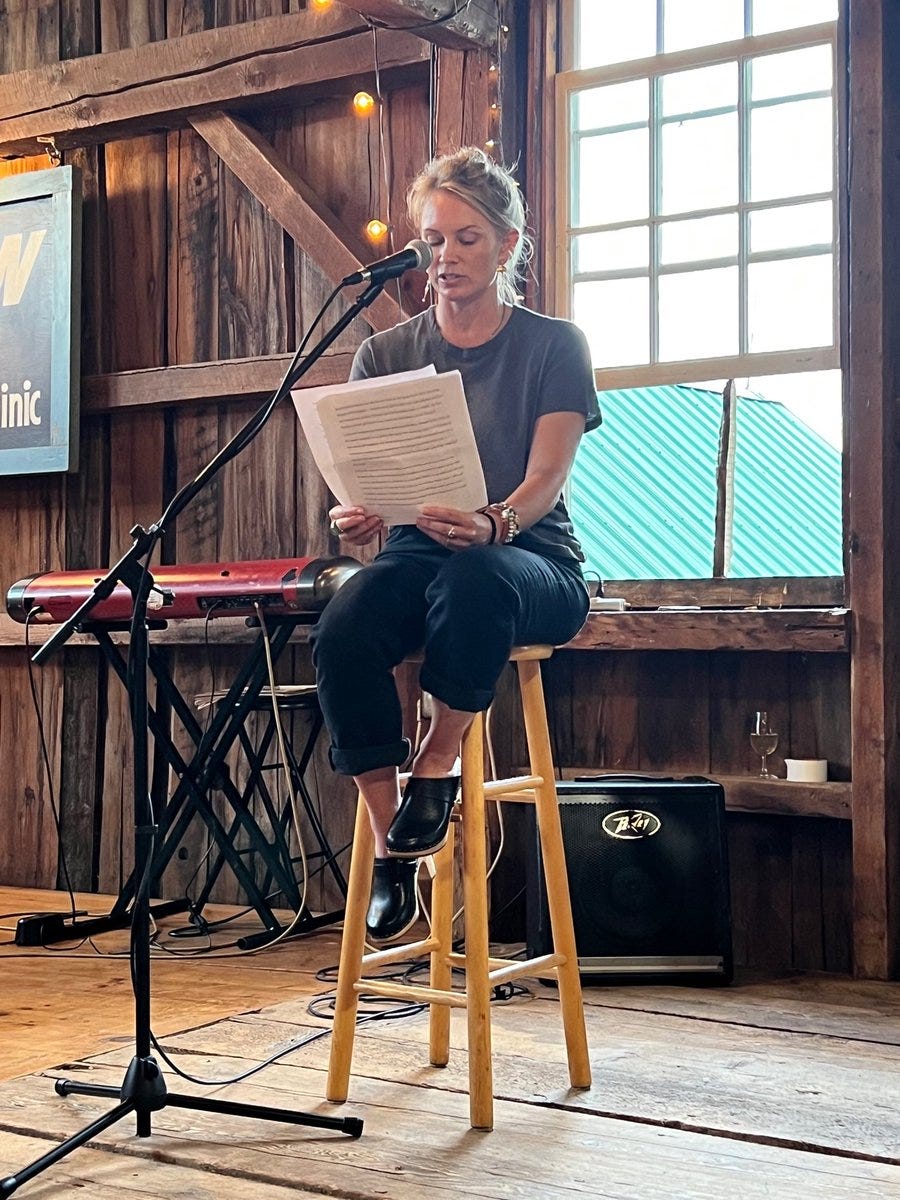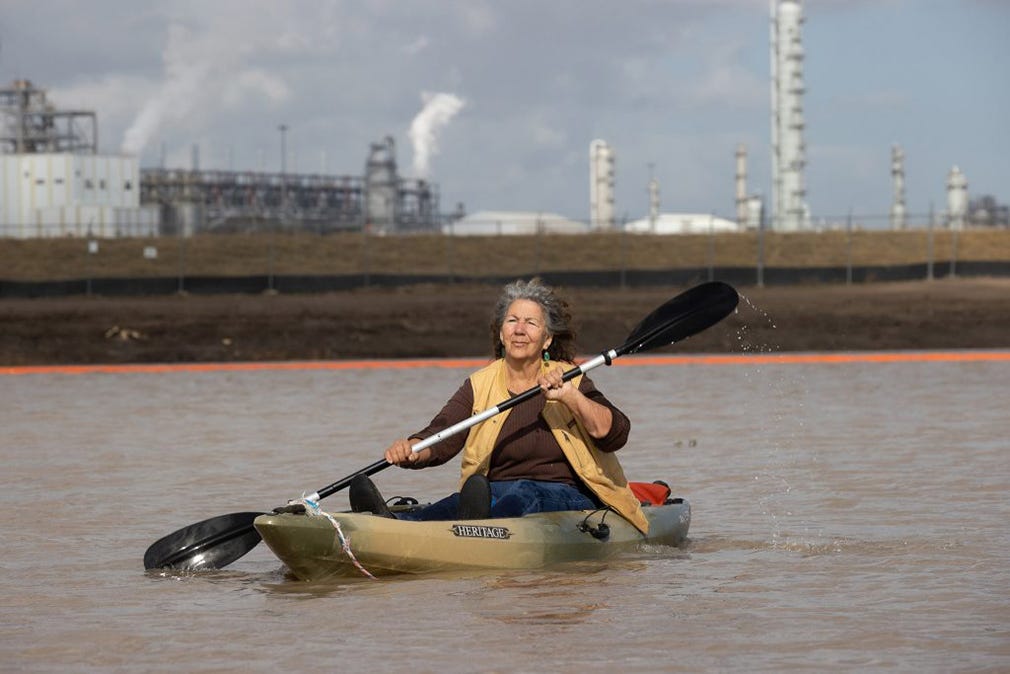Late to the Party
Intentions & Introductions
I hate being late to parties, and I’m late to Substack. I know it. And it’s taken me a moment to figure out the platform, because I typically move intuitively. I feel my way through. I’m also a professor-writer-mom-small business owner, and as a personal policy - I try not to make idle noise. I want it to matter.
Me, at Knoll Farm, trying not to make idle noise at the mic at a “Landscape & Memory” event with Vermont winemaker Deirdre Heekin and composer Ben Cosgrove
Years ago, when I dragged my feet about joining any social media - a friend told me: just be sincere. So when I’m posting here, I’m being sincere. I’m not trying to sell anything I don’t believe in, jam up your inbox, or position myself as any guru.
I genuinely believe I’ve learned a lot about environmental writing, conservation, publishing, fiction, and journalism. As someone who has been teaching for 14+ years, I like sharing what I know and believe in. If I have expertise about environmental storytelling that can help others, I want it to find them.
I feel a sense of urgency about this work. When I was sitting in the audience of the Goldman Environmental Prize Ceremony last year - I listened to 2023 winner Diane Wilson talk about the power of individual action and how it was time to stop being polite about the state of the natural world.
Diane Wilson, paddling in front of Formosa, the plastics company she fought for years.
As a teacher, it has always felt like an honor to watch knowledge and skills cascade through the minds and hands of my students.
I won’t go through my entire bio (you can read it here) - but you might wonder why I think I’m qualified to write a newsletter about environmental writing. Quickly:
I’m an award-winning writer of three books of fiction with Scribner, with a biography under contract.
I’ve been a climate journalist, largely with The Guardian, for 6+ years. My work won the Southern Environmental Law Center’s Reed Environmental Writing Award.
I was the Associate Director of Bennington’s MFA program until I moved over to Middlebury College, where I now direct the Bread Loaf Environmental Writers’ Conference and teach undergraduates
I served as a Senior Fellow for several years with the Conservation Law Foundation, partnering with scientists and lawyers on storytelling.
I’m science literate - I’ve taken biology courses - and taught sustainability courses - at the graduate level.
I run a non-profit and a consulting firm geared toward opening up environmental storytelling.
I sit on the Thoreau Prize Committee.
I publish across a lot of genres: fiction, short fiction, novellas, poems, essays, book reviews, biographies, journalism.
I’m a big bird nerd who has written for Audubon, and I love boats and coastal conservation issues.
I’ve supported a lot - A LOT - of writers of all ages through the writing, pitching, and publication process.
In short - environmental communication knowledge is my expertise, and sharing it is part of my resistance. My personal mission and contribution. The thing I am evangelical about.
Things I Believe:
Humanists and environmental writers can benefit from leaning more intensely into science and field work
Scientists can benefit from leaning into the humanities, and engaging with first person and the general public
We’ve dramatically underestimated the spiritual and existential tax of a visibly and rapidly degrading planet, and this is something a creative practice can help process
We can learn a lot from exploring our own relationships to landscapes and places
We can DO more.
We can honor complexity better - we leave too much environmental progress on the table with purity tests and perfectionism
We may not be able to immediately stop big forces but we can lessen suffering on this planet - and in our own backyards and communities.
More people should feel comfortable joining environmental conversations, bringing conservation mindsets into their jobs, teaching, and writing
If you believe we need to fight for other species and landscapes, and lessen the human suffering unfolding now and in the future, the time to engage is NOW, and I’d like to help you step into that mode.
I’m not trying to write a Substack that talks about “why writing is so hard” or what I’m doing every day. My intention is to write a substantive monthly letter that leans into our relationship with the natural world - I want to think together and reckon with hard questions that shape our thinking, and thus our writing. If we’re writing about place and environmental degradation - may we do it with increasingly better thinking, rigor, and compassion.
I’ll supplement my monthly letter with short notes, prompts, and resources, and soon I’ll be offering more audio and workbooks to paid subscribers.
If you become a paid subscriber of any amount by April 2, 2024, I’ll send you my 10 page workbook for Creating a Values-Led Creative Practice.
For now, with gratitude,
MMB



